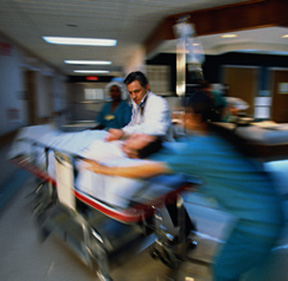Though many citizens and legislators have been pushing for the equal treatment of mental and physical illness, they have much farther to go. This dismaying reality can be seen in a new American College of Emergency Physicians survey of 328 emergency medical directors.
USA Today broke down some of the most troubling results of the emergency room survey. While only 30% of non-psychiatric patients had to wait more than four hours, 80% of psychiatric patients had excessive waits. Almost 10% had to wait more than an entire day.
This treatment imbalance has a variety of causes. One of the most evident reasons is that, since 2000, there has been a 12% drop in the number of psychiatric beds available in community hospitals, even as hospitals around the country have become more overburdened on average. Adding to the problem, only about half of hospitals even have psychiatric units, requiring many patients to be sent far away for help.
Another, harder to measure, reason for unequal waits may be that hospital staffers do not consider psychiatric problems as needful of swift treatment. The immediate danger of a bleeding wound may be easier to see, but mental wounds can be just as perilous. Many mental problems, such as panic attacks, cause acute mental and physical agitation that require prompt attention. Others, like depression or psychosis, have the very real potential of untreated patients harming themselves or others.
Hospitals do of course have limited resources, but they should strive to allocate a fair proportion to the mentally ill that come in their doors expecting help in an emergency.
